Mara Brock Akil's Forever Explores LA Through Fashion
‘Forever’ Costume Designer Tanja Caldwell Breaks Down The LA Style That Made The Netflix Series A Hit For The Culture [Exclusive]
Share the post
Share this link via
Or copy link
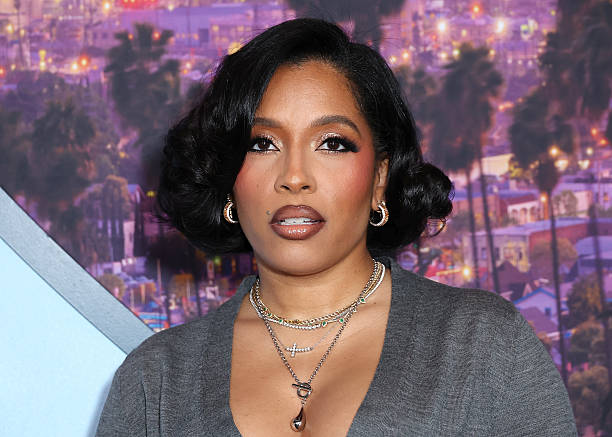
Mara Brock Akil’s Forever has taken the world by storm since its May 8 release, and as much as this is about the tale of first love, it’s also a love story to the culture.
The show is centered around Justin Edwards (Michael Cooper Jr.) and Keisha Clark (Lovie Simone), as they navigate the highs and lows of adolescent love in the modern world filled with social media, text scandals, and just about everything that teenagers of this time grapple with all while falling in love.
A reimagining of Judy Blume’s beloved 1975 novel, “Forever,” the latest Netflix craze, is a product of Mara Brock Akil, the writer known for classics like Girlfriends, Being Mary Jane, The Game, and other sitcoms that have tugged at the heartstrings of the culture since the 2000s. In addition to the characters of Akil’s latest masterpiece, the city of Los Angeles, her hometown, is as much of a character in the show as the people, and it’s evident in the fashion brought forth by costume designer and LA transplant Tanja Caldwell.

Love MadameNoire? Get more! Join the MadameNoire Newsletter
We care about your data. See our privacy policy.
“First of all, working with Mara is always a pleasure,” she told Madamenoire. “You’re working with someone who has a really strong hold on, I think, not just Black culture, but specifically LA culture, and like young, adult culture. She really studies, and I think that’s part of the process for me, always with any project I do, is studying it and understanding it fully.”
RELATED CONTENT: Ryan Coogler Enlists Wardrobe Wizard Ruth Carter For ‘Sinners’
“For this one, I feel like, you know, I’m not originally from LA, but I’ve lived here for so long that I can look like I understand that culture, and I’ve embraced it myself,” Caldwell continued. “It’s always a pleasure when I get to showcase that in a really honest, true, genuine way, especially Black LA culture. When I was first approached by Mara and Regina [King], that was one of the first things that they said, like, ‘We really want to make sure it speaks to a part of LA and feels really genuine and true to young, Black people. That they can look at it and really see themselves reflected back to them, which really attracted me to the project, and was 100 percent a part of our process from the beginning. How do we make this genuine and true to real LA culture, young Black culture? And, so I feel like we did that.”
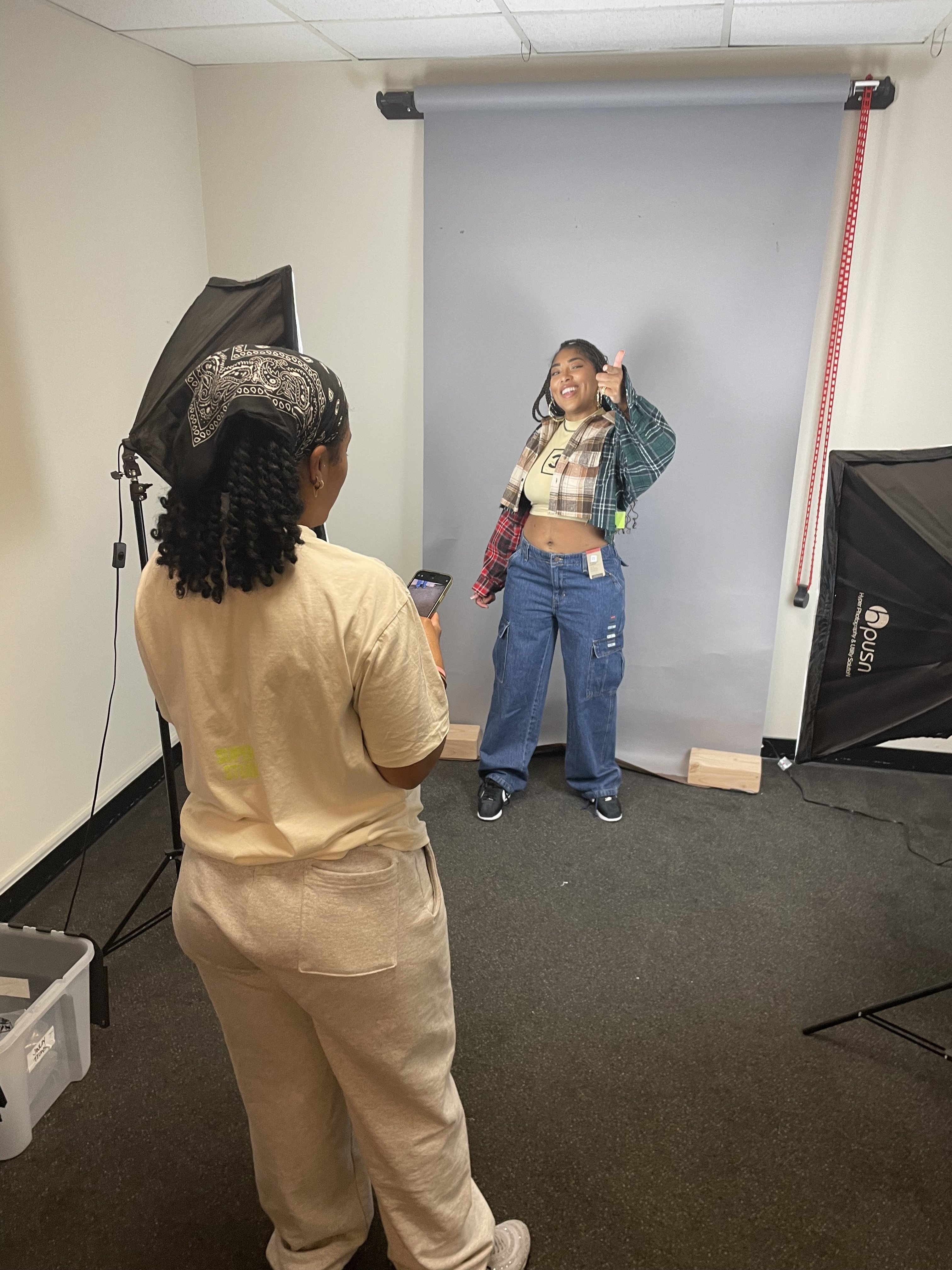
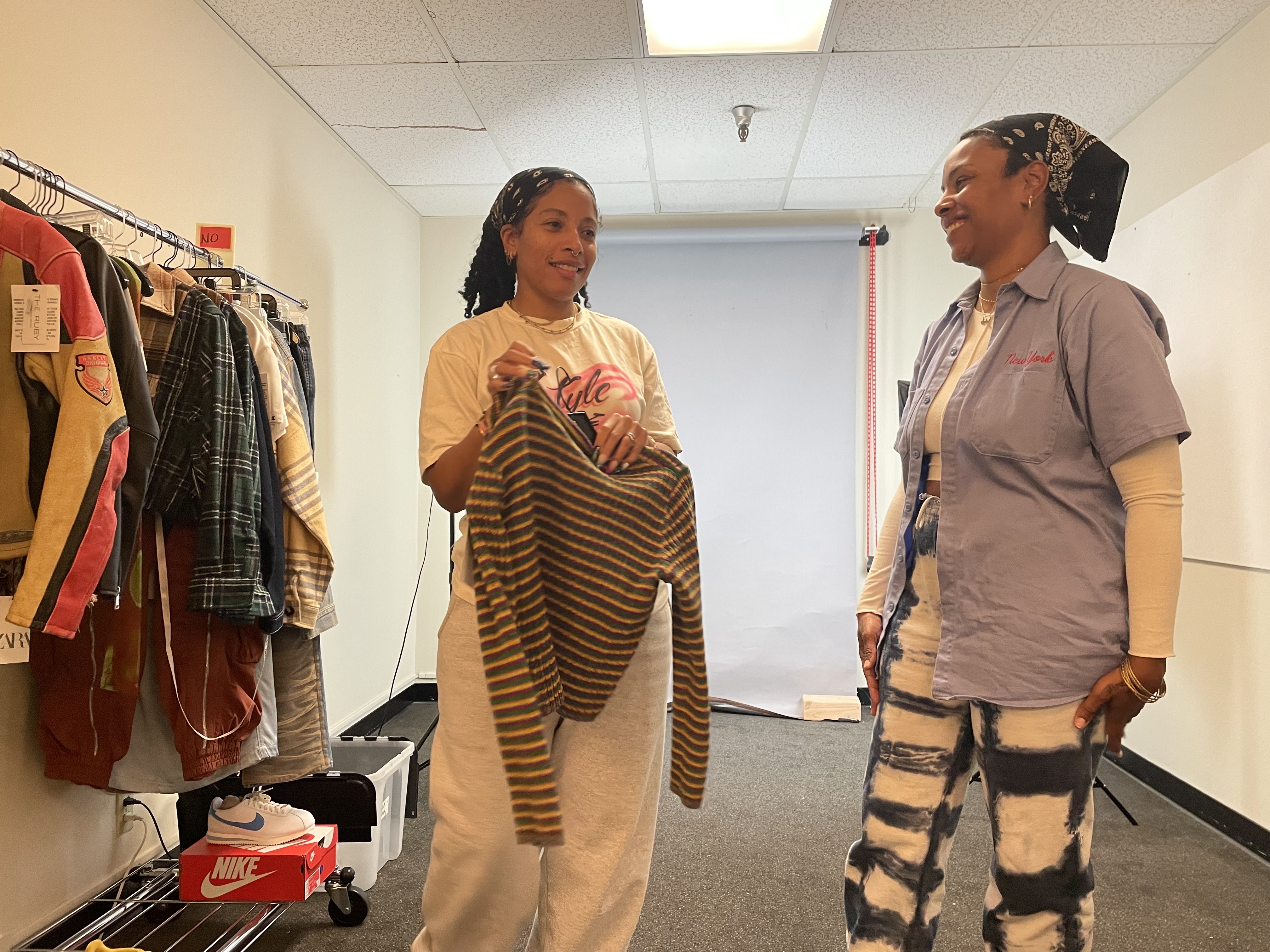
Caldwell, whose track record includes serving as the costume designer for Usher’s Super Bowl LVIII Halftime show, says that her approach to Simone’s character was art imitating life, especially as someone who grew up loving and embracing the tomboy swag.
“I see a lot of myself in Keisha, and I think a lot of young women, even women my age that ain’t so young, but was young at one time, really relate to that,” Caldwell explained. “I think there’s a journey in how you kind of see yourself, and how your style develops as a young woman, and what you’re drawn to. When I was Keisha’s age, maybe a little bit younger, I was really drawn to artists and musicians, and one of them was, of course, Aaliyah and TLC. I feel like I related to them, not only the music, but the style. I saw myself in them.”
She added, “It was really seamless to implement my own honest, true references of my childhood into Keisha, but then also bring in the nuances of current LA, 2017, and beyond. I really feel like LA, New York, or Atlanta are very much the creators of culture, you know, pop culture, not just Black culture. There’s so many iconic fashion staples in LA culture that you start to see in the Midwest, South with Dickies and Carharts, and clean Chuck Taylors, and so it was really important to me to make sure that element was there and not in a stereotypical way.”
For Simone, a native New Yorker, working alongside Caldwell was almost like a history lesson in the fashion of the West Coast, especially in LA, where the show is set.
“Working with Tanja was a breath of fresh air! It was easy to be let into Keisha’s world through the fashion,” said the Greenleaf actress. “She allowed me to learn so much about the times all over again, but from a different side of the country! I saw the parts of me that love athleisure, which made it easy to feel comfortable in Keisha.”
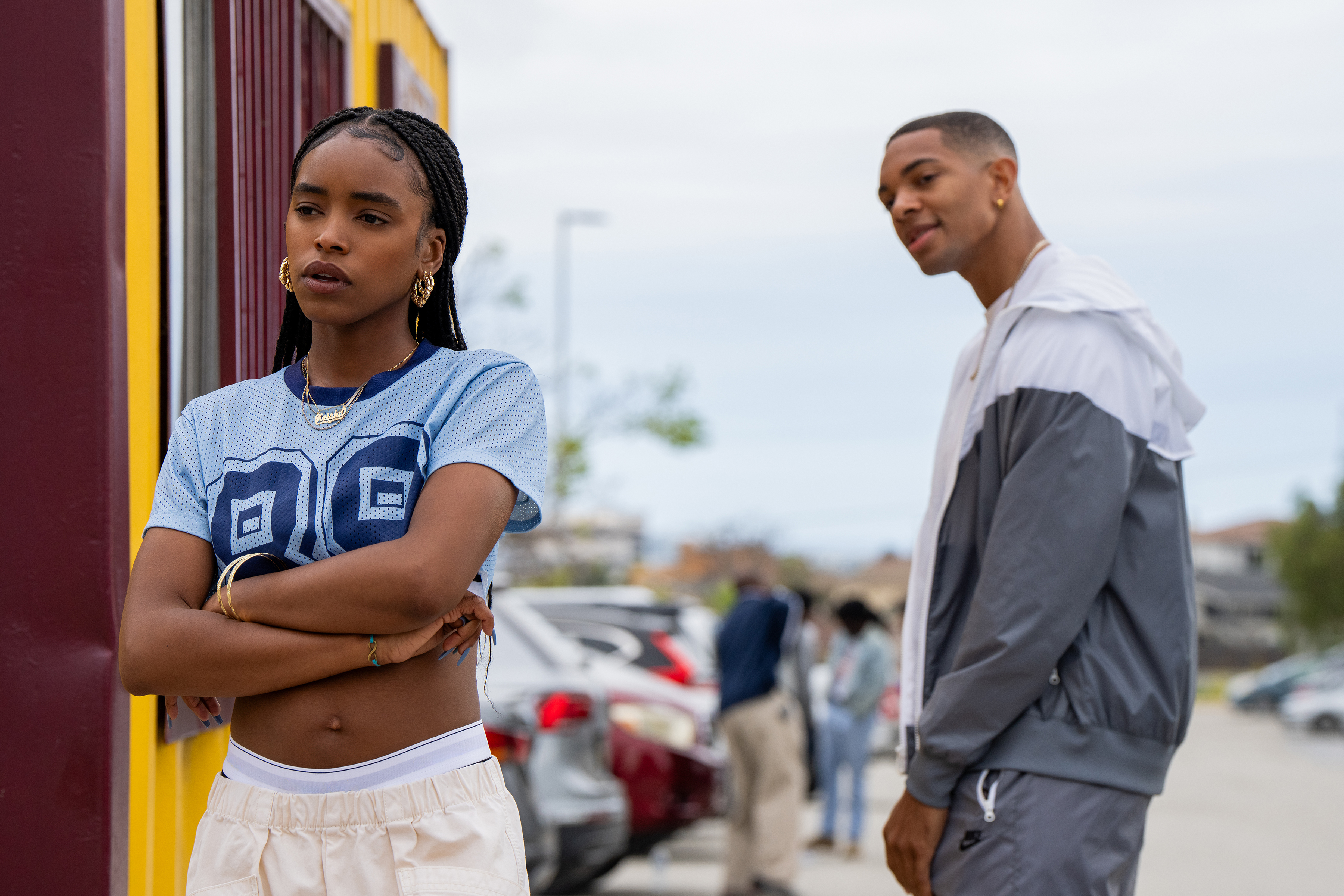

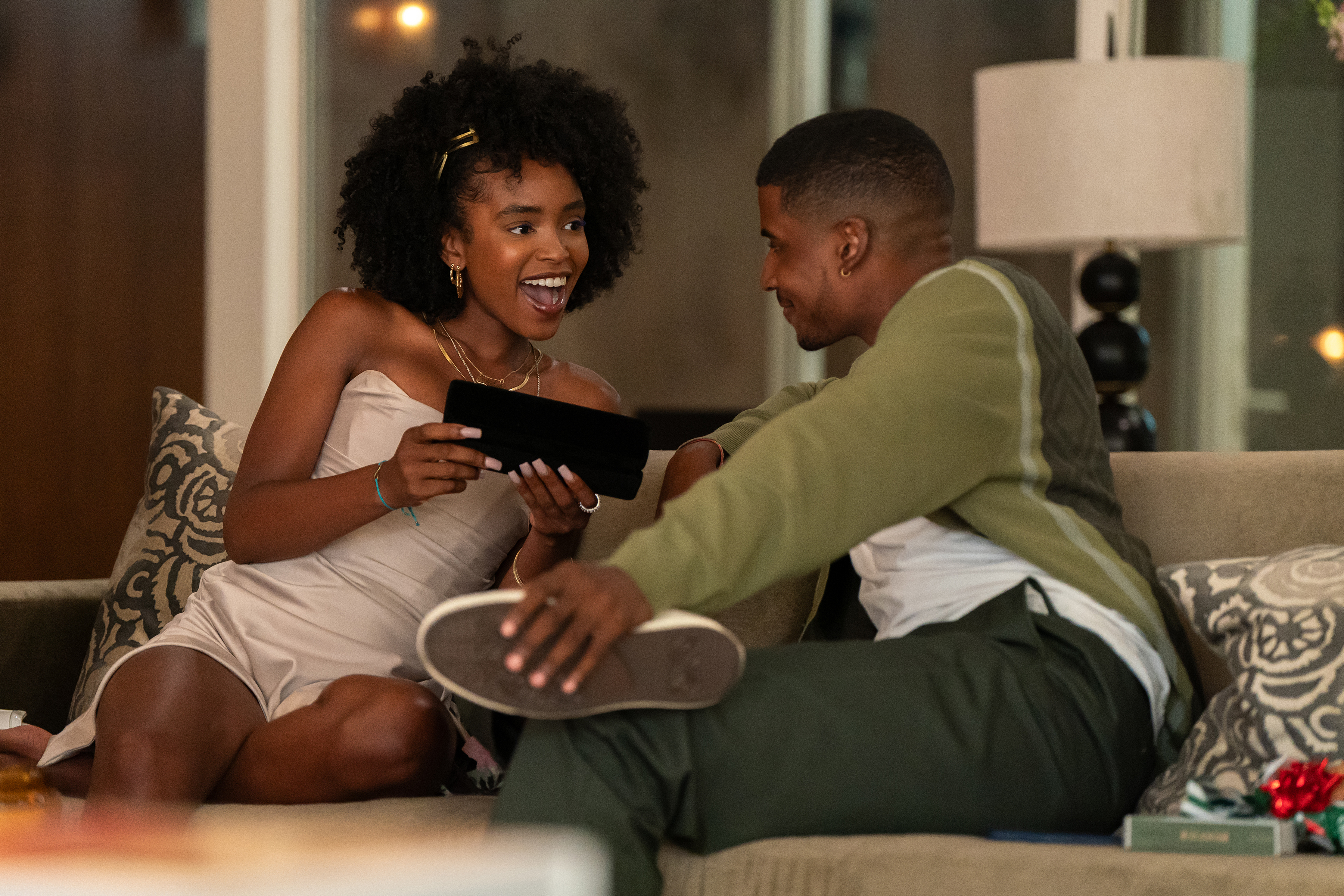
Moreover, she says Keisha’s fashion reflects that she’s “a cool nerd.”
“In all seriousness, the wardrobe stays honest to how Keisha is doing mentally at the time,” said Lovie. “You can tell when she’s feeling herself, and you can tell when she’s going on a date! It’s fun to explore the different parts of her life through style.”
Mara Brock Akil’s Forever is currently available to stream on Netflix.
RELATED CONTENT: This Was Supposed To Be A Review Of ‘Forever,’ But It’s Not
-

She Tried It: Inahsi Naturals Aloe Hibiscus Leave-In Conditioner & Detangler
-

Meet Dominique Fils-Aimé, The Haitian-Canadian Star Redefining Jazz For A New Generation: ‘This is My Vision' [Exclusive]
-

Cooking With Purpose — How Brittney Williams Honors Her Caribbean Roots Through Food
-

8 Famous Lesbian Women Who Were Married To Men



